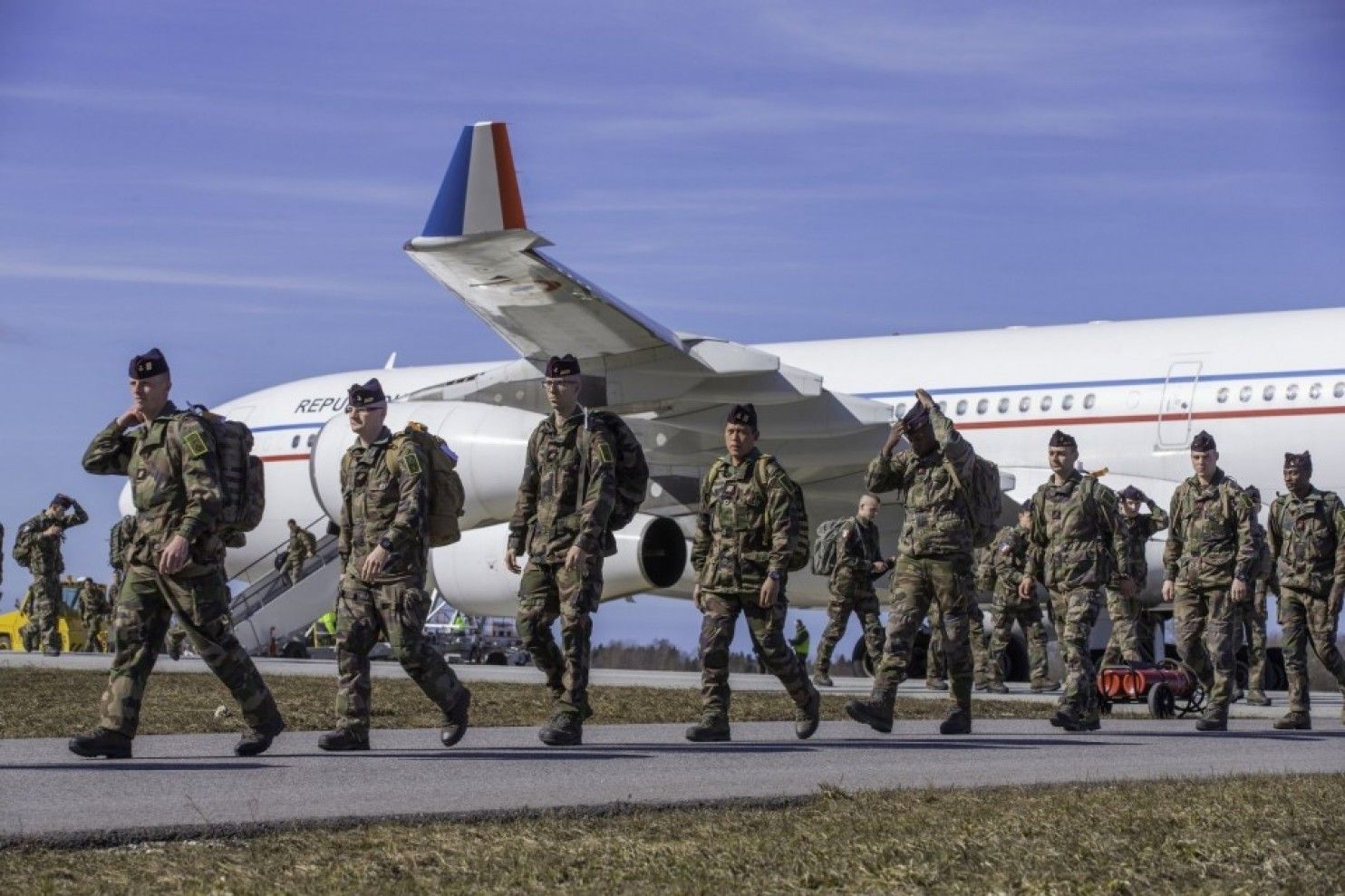An odd thing happened in Lithuania in February. An anonymous sender dispatched an email to a leading member of Parliament and several media outlets. The message claimed that German soldiers, part of a NATO contingent recently dispatched to the Baltic republic, had raped a teenage girl.
The story was fake. The Lithuanian government moved quickly to declare it as such before it managed to get traction on social media. What could have developed into a massive scandal fizzled instead.
The author of the message had long since vanished, taking care to delete his electronic footprint. Lithuanian officials immediately fingered Moscow as the responsible party. It’s likely they were right. The problem is that there was no evidence one way or the other — as is so often the case with online trickery.
Americans and Western Europeans have only just begun to wake up to Russia’s use of information as a tool of mischief. But it’s nothing new to the three Baltic countries of Estonia, Latvia and Lithuania, which regained their independence from the old Soviet Union at the beginning of the 1990s. For the past quarter of a century they’ve been doing their best to respond to the inflow of destabilizing innuendo from their huge neighbor to the east.
Interference with elections? Check. Cyberattacks? Check. Prominent politicians with murky links to the Kremlin? Check. Fake news and skillfully targeted rumors? Double check.
Nowadays the three countries are staunch members of the European Union and NATO, which certainly helps to boost their defenses against meddling from the outside. But they’re also home to large Russian-speaking minorities that remain from Soviet days, who largely rely on Russian television for their entertainment and news, making them easy targets for what one U.S. think tank calls Moscow’s “firehose of falsehood.” “I remember reading all these articles from seven or eight years ago,” says Raul Rebane, a veteran of Estonian television who now runs a consultancy on strategic communications. “They used to say, ‘Information operations are supposed to support the military.’ Now they’ve figured out that information is the operation.”
The issue is especially sensitive now, as NATO is bolstering its troop presence in the three countries to deter Moscow from repeating its invasions in Crimea and eastern Ukraine. But the Russians still have plenty of room for dirty tricks. NATO troops arriving in Estonia have been warned to beware of sexual blackmail attempts or efforts to hack their social-media accounts. Moscow-controlled media outlets strive, without evidence, to depict the Balts as racists who won’t dare to tolerate the presence of nonwhite soldiers — a bit rich, given that Russian media outlets elsewhere in Europe are busily fomenting anti-migrant sentiments. But nowadays Moscow couldn’t care less about consistency. “The aim,” as British journalist Peter Pomerantsev once put it, “is to confuse rather than convince, to trash the information space so the audience gives up looking for any truth amid the chaos.”
Yet the Russians do have their persistent themes, endlessly and persistently repeated: Like their Western European friends, Moscow claims, Balts have utter contempt for traditional family values, enthusiastically embracing atheism, gay people and pedophiles. The Baltic countries are failed states, their economies struggling. (In 2016, the average salary in Estonia was twice that in Russia.) And perhaps most ominously of all, Russian-sponsored media outlets continue to advance the notion — just as the Soviets did — that the Baltic states are fake countries that have no real justification for an independent existence.
Sanita Jemberga, an investigative journalist in Riga, is one of the people behind a recent documentary film that follows the various ways Russia attempts to push its agenda in the Baltic states. She has traced the ownership of disinformation websites through labyrinths of shell companies back to their real origins in Moscow, and has tracked the flow of money from Kremlin coffers to corrupt Latvian politicians.
All this helps to discredit some of the more obvious lies — yet there are always seem to be more to come. “When they depict you as part of the rotten West, as a homosexual paradise, it’s very easy to laugh it off,” says Jemberga. “But then you find yourself remembering how they used imaginary fascism to turn Ukraine from a friendly nation into their most serious enemy.”
Along the way the Balts have learned important lessons that their friends in the United States and Western Europe would do well to note. Most experts stress that trying to debunk every fake story spewed out by Moscow’s giant lie machine is the wrong way to go. “They have a huge toolbox,” says Mikk Maran, the head of the Estonian foreign intelligence service. “Russia has been active. The West has been reactive.”
“If you only focus on countering, you’re on their territory,” says Ben Heap, a member of the Strategic Communications Centre of Excellence, a NATO think tank based in Riga, Latvia.
The Balts are fighting back in a variety of ways. They’re working hard to bolster their cyberdefenses. They’re trying to do a better job of integrating their Russian-speaking populations, in some cases with notable success. As part of that effort, Estonia has opened its own Russian-language TV channel, a modest attempt to counter the hitherto-near-unchallenged supremacy of Putin’s broadcast empire. (As Estonian public-television executive Ainar Ruussaar put it: “Sometimes communication is more important than antitank missiles.”) And the Latvians are working hard on building media literacy, using school workshops that teach teachers and students to differentiate journalistic fact from fiction as well as public service announcements that draw attention to fake news stories.
The Balts don’t take any of this lightly. They know, from their bitter Soviet experience, how important it is to keep your own story alive, no matter how hard the fight.
